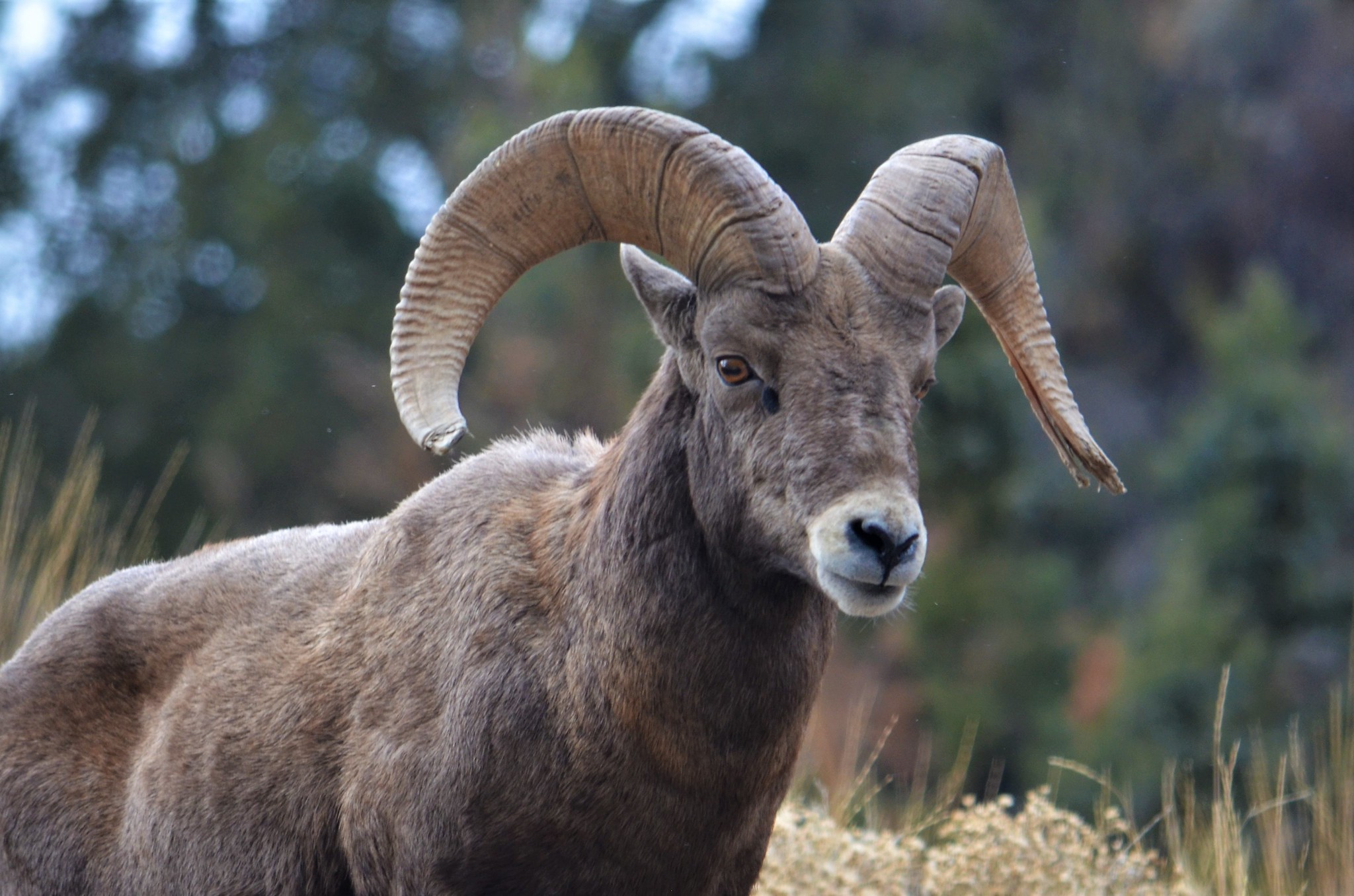
This file photo shows a bighorn sheep ram in Baker County, Oregon.
Baker County Tourism Travel Baker County / Flickr Creative Commons
Bighorn sheep in Hells Canyon are turning up sick with pneumonia after more than five years without an outbreak of the potentially fatal disease. In an unfortunate turn, biologists said, the highly contagious illness could have spread because the herd was doing so well.
In mid-December 2023, biologists found a ram near the Snake River on the Idaho side of Hells Canyon. A necropsy confirmed the ram had died of pneumonia.
Since then, coughing and lethargic bighorns have turned up in Idaho, Washington and Oregon. There is no vaccine or treatment.
The bacterium Mycoplasma ovipneumonia, or M. ovi for short, caused the disease. It’s often transmitted from domestic sheep, which aren’t as susceptible as bighorns.
If female bighorns survive the often-fatal disease, they can pass it to lambs, which could allow it to persist for years.
Biologists aren’t sure where this most recent strain came from, although it likely happened farther away than they thought it would, said Frances Cassirer, a wildlife research biologist with the Idaho Department of Fish and Game.
“The movement came from populations that we haven't detected ever in Hells Canyon, but it seems like we need to be looking at things on a bigger scale,” she said.
Because the bighorns had been doing so well, it’s likely they came into contact with more sheep, she said.
“We have to help sheep be able to live in the world we live in, not the world we wish we had,” she said. “So, I hope that people recognize that this is a big problem for bighorns.”
Once the outbreak has slowed, biologists might have to euthanize some of the bighorns to keep the disease from spreading further, she said.
Officials ask people to report sick or dead bighorns to state wildlife departments.


